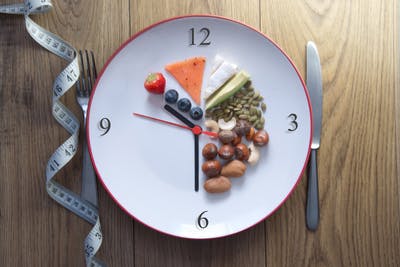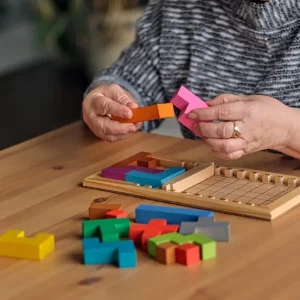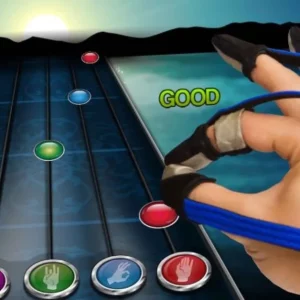Many people recovering from brain injury will want to use caffeine to eliminate the cognitive fatigue or “brain fog” that often accompanies a TBI. However, patients should proceed with caution. While caffeine in small amounts is safe after a brain injury, excessive caffeine use can hinder recovery.
Today’s article will discuss when TBI patients can start drinking coffee and other caffeinated drinks again after TBI. We will also show you some alternative ways to overcome brain fog without using stimulants.
Effects of Caffeine on the Injured Brain
The research is divided on whether or not caffeine is harmful after a brain injury.
On the one hand, coffee contains antioxidants that help the brain reduce inflammation and function more efficiently.
On the other hand, some studies show that caffeine blocks the release of adenosine, a neuroprotective agent that brings down inflammation and promotes brain healing. As a result, it could slow down the recovery process.
Finally, caffeine is also a vasoconstrictor, which means it constricts the blood vessels in the brain, reducing blood flow. Without enough cerebral blood flow, the brain can’t get the vital nutrients it needs to repair itself. This will also impair function.
However, the amount and frequency of caffeine consumption can greatly alter the degree that vasoconstriction occurs in the body, and a small amount of vasoconstriction is not always a negative thing.
Is Caffeine Safe After Brain Injury?

Returning to the original question, is caffeine after a brain injury or concussion safe? The answer according to most physicians is: yes and no.
Too much caffeine can irritate your already-sensitive brain and slow recovery, especially during the first few weeks after injury. Therefore, you should definitely cut out highly caffeinated energy drinks from your diet.
But consuming one or two cups of coffee a day will not severely affect you, since the caffeine content in coffee is not high enough to cause damage.
Still, if you struggle with mental fatigue after brain injury, it’s a good idea to avoid artificial stimulants altogether and seek out natural alternatives instead. Not only will you have longer-lasting energy, but you also will not have to worry about impeding your recovery.
Alternatives to Caffeine
Although caffeine in moderate amounts is not dangerous after brain injury, patients should still do their best to avoid caffeinated drinks as much as possible.
The brain easily builds up a tolerance to caffeine, which means the more you consume, the fewer benefits you will see. Therefore, doctors will typically recommend using natural alternatives as much as possible.
The following are a few healthy alternatives to caffeine that can help improve your energy after TBI:
1. Fast Intermittently

Fasting intermittently has many health benefits, including boosting brain function and reducing mental fatigue. It also confers several neuroprotective benefits to brain injury survivors.
When you fast, your body converts fat into ketones and burns those for energy rather than sugar, as it normally does.
This is especially helpful for brain injury patients because, after a TBI, the brain can no longer efficiently convert glucose into energy. However, the brain can still use ketones. Therefore, fasting offers the brain another energy source to draw from. This is the principle behind the ketogenic diet for brain injury patients.
The ideal fasting length is around sixteen hours without eating. For most people, this just means skipping breakfast in the morning and quitting food after 8 p.m.
Not everyone can fast safely, however. If you are diabetic or recovering from surgery, do not attempt to fast without permission from your doctor.
2. Eat Energy-Boosting Foods
Fasting will not have much effect if you only eat junk food however. That’s why you must consume healthy, energy-rich foods such as foods that heal the brain after a concussion.
These foods include:
- Blueberries
- Broccoli
- Fatty fish
- Bananas
- Nuts
In addition, make sure to stay hydrated. The more hydrated you are, the more your body can flush out the harmful toxins that have accumulated in your brain since your injury. This can also improve your mental clarity.
3. Exercise

Exercise not only boosts endorphins, which can make you feel more energized, it also increases oxygen levels in your blood and increases blood flow to your brain. All of this helps your brain heal and provides more energy throughout the day, making it a great alternative to caffeine after brain injury.
In the past, many doctors discouraged exercise after a TBI, for fear that it might further damage the brain. But while it is important to rest in the immediate weeks after a brain injury, there is no evidence that light exercise after that point will cause damage. In fact, it may even promote a fuller recovery.
The best type of exercise for curing exhaustion is any kind of aerobic activity – such as swimming, biking, or yoga. If you find it too difficult to exercise at first, do not worry. It will take time to rebuild your tolerance.
Instead, start with a light and short workout, maybe ten minutes or less. Then, gradually increase the intensity and frequency of your exercise routine.
Eventually, you should start gaining enough energy and endurance to exercise regularly.
4. Get Healthy Sleep
If you find yourself constantly fatigued, it could be because you have developed a sleep disorder that is preventing your brain from getting the rest it needs to heal.
In fact, one of the most common sleep disorders after a brain injury is sleep apnea. Sleep apnea occurs when a person’s breathing is disrupted while sleeping. This leads to an excess amount of CO2 in the bloodstream, which can cause extreme fatigue during waking hours.
An overnight sleep study will identify any sleep disorders you may have. Once you know what the problem is, a sleep specialist can recommend treatments that will give you a refreshing night’s sleep again.
5. Reduce Stress

Finally, too much stress on the brain can cause mental fogginess. That’s why it is vital to find ways to reduce stress after brain injury.
Relaxing activities such as yoga and mindfulness are great stress-reducing methods. In addition, art therapy can help you find a creative outlet for your stress and anxiety.
It can also help to create a space in your house where you can retreat from all the noise and distractions in your life. A place to recharge and regain mental clarity. This will keep you from experiencing sensory overload as well.
Caffeine After Brain Injury: Conclusion
In the end, drinking caffeine after brain injury is relatively safe, in moderation. Because coffee and tea contain antioxidants and many other health benefits, it is better to consume those rather than other strong caffeinated beverages, such as energy drinks.
Too much caffeine, however, can harm your TBI recovery. That’s why it’s best to find natural alternatives to caffeine if you struggle with chronic fatigue.
Regular exercise and a good diet can give you longer bursts of energy with none of the negative side effects of caffeine. That sounds like a good deal to us.









